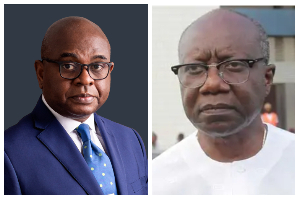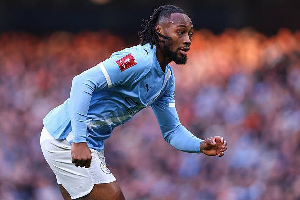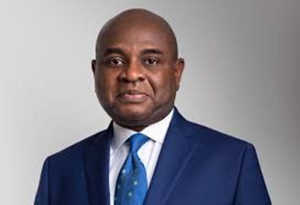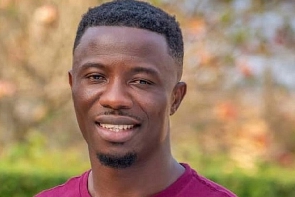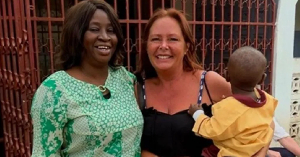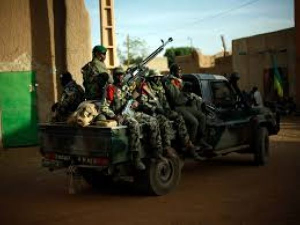By Kwame Okoampa-Ahoofe, Jr., Ph.D.
I have been trying to recover from what may aptly be described as a post-NPP-primary traumatic syndrome. And in this process, I am also seriously taking stock of what my ideological and sympathetic association with Ghana’s most democratic political assembly has meant for both my spiritual and psychological edification, as well as the greater development of our beloved country at large.
In simple terms, I guess you could quite accurately describe me as a man at the crossroads. On the whole, my feeling towards passionately supporting the New Patriotic Party is one that is decidedly mixed. I have not been the least bit enthused by the abject opportunism and crass materialism that appear to epitomize some of the membership’s evidently gross misreading of Dr. J. B. Danquah’s credo of forging “a property-owning democracy,” as opposed to the palpably regressive sort of State Capitalism, or Socialism, evangelically championed by Ghana’s first prime minister and later president, Mr. Kwame Nkrumah.
In the former situation, governance is geared towards the salutary induction of economic access and prosperity in accordance with the proverbial protestant ethic of diligence and self-reliance. In the latter case, capitalism, even at its most rudimentary level – as was largely the case in Africa’s colonial era – is roundly maligned as the bane of our wretched human condition. In its place is to be established a kind of evenhanded commonwealth which aims to avail the comforts of life to all citizens and/or residents of the polity, or nation, with little or absolutely no great regard for individual input in the creation of such commonwealth.
Increasingly, however, what we have been witnessing in Ghana’s so-called Fourth Republic, inaugurated in January 1992, is systemic corruption at both the executive and legislative levels as to render the country’s two major political parties – the so-called National Democratic Congress (NDC) and the New Patriotic Party – almost indistinguishable from each other. For instance, it has become routine, irrespective of which of these two parties is afforded the electoral mandate – to expect that parliamentarians would automatically be advanced $ 50,000 largesse in the form of a pseudo-loan most of which may not have to be repaid according to the contractual terms of the same. This has come to be called an “Auto-Loan,” suggestively to be applied towards the purchase of a reliable means of transportation by members of the country’s national assembly.
The venal aspect of the following fiscal facility inheres, of course, in the fact that this $ 50,000 largesse has become a quadrennial affair, with multiple-term elected parliamentarians receiving pseudo-loan checks every four years. And since there is absolutely no audit mechanism in place to ensure that the monies are, indeed, applied for the express purposes for which they were earmarked, it stands to reason to assume that such monies are used at the discretion of the people’s representatives for whatever these MPs may deem sound and appropriate, which may range anywhere from subsidizing the wanton acquisition of mistresses to personal ventures at the expense of the citizenry.
Then there is also this systematic culture of contractual bribery, whereby designated contract negotiators on behalf of the people anticipate quite “decent” amounts of petty payolas in order to plunge an entire country and its future into servile indentureship, as recently happened with the case of the NDC-STX architectural contract with a South Korean firm, which virtually guaranteed that the first ten years of Ghana’s new-found oil revenue would be slavishly invested in the economic recovery of STX, the cash-strapped and desperately struggling Korean firm and, in effect, the far more advanced Korean national economy itself.
In the STX case, government negotiators, including the substantive Vice-President of our august Republic, received gifts in the form of such hi-tech toys as cameras and, one presumes, laptops in order to facilitate the evidently no-bid housing contract with the Koreans. Indeed, it is for the foregoing reasons that I was quite amused recently to read an article captioned “Minority Tribes Missing As NPP Parade [sic] Akans Only,” which appeared on the website of Ghanaweb.com (8/6/10).
As the title of the article glaringly grieved, it appears as if membership of the now-opposition New Patriotic Party is specially preserved for only members of Ghana’s ethnic majority, the Akan, who officially constitute 50-percent of the country’s population of an estimated 24 million people, and unofficially between 60-70-percent of people calling themselves Ghanaians at large. The article was sourced to a newspaper called the Herald. It read like an editorial, being also clearly deliberately unsigned. What the Herald editor, or editors, meant their readers to come away from their editorial write-up thinking and feeling is that, somehow, unlike the NPP, the Rawlings-chaperoned National Democratic Congress sports “an impeccably representative parade of all Ghanaian ethnic groups.”
In reality, the NDC is and has always been a thoroughgoing Ewe-dominated terrorist organization that over the past three decades, and in its various disguises as the Armed Forces Revolutionary Council (AFRC), Provisional National Defense Council (PNDC) and now National Democratic Congress (NDC), has nonchalantly caused the summary execution of Akan Supreme Court judges and other diligent citizens whose apparently sole crime was having been born Akan.
But even more significant, and a fact that the editor of the Herald seems to have deliberately and conveniently ignored, is that on a political balance sheet, the supposedly minority-dominated, or largely minority-composed NDC, has fared significantly worse at the helm of governance than the Akan-dominated NPP. What the preceding clearly means, of course, is that the effective “minoritization” of the NDC, as opposed to the defective “majoritization” of the NPP, has not in any way, shape or form demonstrated that the apparent lack of a critical mass of ethnic minorities among its rank-and-file membership – and also its executive ranks – has rendered the NPP any less of an effective administrative machinery than the NDC.
In reality, the reverse may quite be the case. And, in essence, it is rather our measured contention here that Mr. Rawlings’ systematic attempt to alienate Ghana’s Akan ethnic majority from membership among the ranks of the NDC has virtually and effectively guaranteed that the best and brightest among Ghana’s national talent pool would not be utilized.
The preceding notwithstanding, still, it can hardly be gainsaid that the largely avoidable level of rancor that characterized the most recent NPP presidential primary has left a sour taste in my mouth. It is the kind of fever-taste at the tip of one’s tongue that one wishes an overnight dosage of Aspirin could wash far off into the sea. For I feel decidedly traumatized and burned out. And I feel I need, perhaps, a whole year’s worth of prayer to keep me going.
*Kwame Okoampa-Ahoofe, Jr., Ph.D., is Associate Professor of English, Journalism and Creative Writing at Nassau Community College of the State University of New York, Garden City. He is a Governing Board Member of the Accra-based Danquah Institute (DI) and the author of 21 books, including “Ghanaian Politics Today” (Atumpan Publications/Lulu.com, 2008). E-mail: okoampaahoofe@optimum.net.
###
Opinions of Monday, 30 August 2010
Columnist: Okoampa-Ahoofe, Kwame


